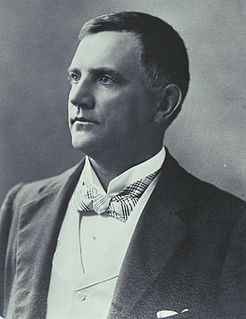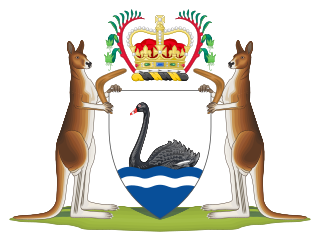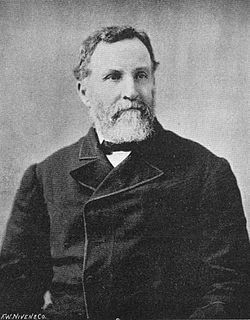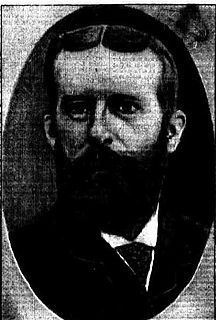
George Leake was the third Premier of Western Australia, serving from May to November 1901 and then again from December 1901 to his death.

Sir Paul Meernaa Caedwalla Hasluck, was an Australian statesman who served as the 17th Governor-General of Australia, in office from 1969 to 1974. Prior to that, he was a Liberal Party politician, holding ministerial office continuously from 1951 to 1969.

The Parliament of Western Australia is the bicameral legislature of the Australian state of Western Australia, forming the legislative branch of the Government of Western Australia. The parliament consists of a lower house, the Legislative Assembly, an upper house, the Legislative Council and the Queen, represented by the Governor of Western Australia. The two Houses of Parliament sit in Parliament House in the state capital, Perth.
Robert Menli Lyon was a pioneering Western Australian settler who became one of the earliest outspoken advocates for Indigenous Australian rights and welfare in the colony. He published the first information on the Aboriginal language of the Perth area.

The Western Australian Legislative Council is the upper house of the Parliament of Western Australia, a state of Australia. It is regarded as a house of review for legislation passed by the Legislative Assembly, the lower house. The two Houses of Parliament sit in Parliament House in the state capital, Perth.
The Daglish Ministry was the 7th Ministry of the Government of Western Australia and was led by Labor Premier Henry Daglish. It succeeded the James Ministry on 10 August 1904 after the 1904 election boosted Labor's seat count from 8 to 22 in the 50-seat Legislative Assembly. As such it was a minority government and relied on the support of four independents.

Edward Hamersley was a Western Australian pastoralist, and a Member of the Western Australian Legislative Council for nearly ten years.
Thomas Brown was an early settler in colonial Western Australia, and a Member of the Western Australian Legislative Council.

Sir George Shenton was a prominent businessman in colonial Western Australia, the first Mayor of Perth, and a Member of the Western Australian Legislative Council for over thirty years.

John Henry Monger Jr was a Member of the Western Australian Legislative Council from 1870 to 1875, and again from 1890 to 1892.

William Locke Brockman was an early settler in Western Australia, who became a leading pastoralist and stock breeder, and a Member of the Western Australian Legislative Council.

Frederick Illingworth, Australian politician, was a Member of Parliament in two Australian states, and a government minister in Western Australia. As a financier of land speculation in Victoria in the 1880s, he was heavily involved in the Victorian land boom.

Sir William Thorley Loton, was an Australian politician.
George Leake (1786–1849) was a wealthy landholder in the early days of the Swan River Colony. Backed with considerable assets, Leake supported many of the early settlers of the colony who were struggling financially.

George Randell was an Australian businessman and politician. He served intermittently in the Parliament of Western Australia between 1875 and 1910, including as a minister in the government of Sir John Forrest.

The Hon Septimus Burt KC was a Western Australian lawyer, politician and grazier, the son of Sir Archibald Burt.
Samuel Edward Moore was a prominent early settler in colonial Western Australia, a merchant, pastoralist and a politician.
Swan, officially called The Swan, was an electoral district of the Legislative Council of Western Australia from 1870 to 1890, during the period when the Legislative Council was the sole chamber of the Parliament of Western Australia.
Thomas Courthope Gull was an early settler of Western Australia who served as a member of the colony's Legislative Council from 1870 to 1872.

Elections were held in the Colony of Western Australia in December 1890 to elect 30 members to the Legislative Assembly. They were the first elections to be held for the Legislative Assembly, which had been created earlier in the year by a new constitution that granted Western Australia responsible self-government.
Except where otherwise indicated, all list data was obtained from The Western Australian Parliamentary Handbook [6]







































